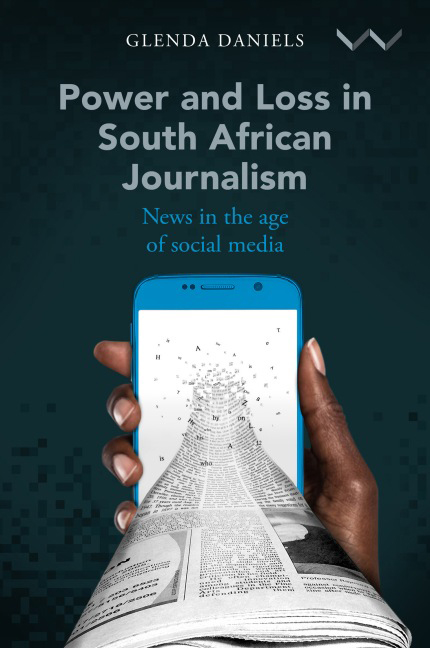Book contents
- Frontmatter
- Dedication
- Contents
- Tables and Figures
- Preface
- Acknowledgements
- Acronyms and Abbreviations
- 1 Power and Subjection in the Media Landscape
- 2 The Media, the State and Zuma’s ANC
- 3 ‘Zupta’: Power and Loss in Investigative Journalism
- 4 The Job Loss Tsunami
- 5 Going Online When You’re Offline: The Case of Community Media
- 6 The Anti-Feminist Backlash, the Glass Ceiling and Online Trolls
- 7 Decolonial ‘Green Shoots’
- 8 Power, Loss and Reimagining Journalism
- Epilogue
- Appendices
- Appendix A Press Code of Ethics and Conduct for South African Print and Online Media (effective from 1 January 2016)
- Appendix B amaBhungane Stories in the Past Two or Three Years
- Notes
- Glossary
- Bibliography
- Index
Epilogue
Published online by Cambridge University Press: 10 September 2020
- Frontmatter
- Dedication
- Contents
- Tables and Figures
- Preface
- Acknowledgements
- Acronyms and Abbreviations
- 1 Power and Subjection in the Media Landscape
- 2 The Media, the State and Zuma’s ANC
- 3 ‘Zupta’: Power and Loss in Investigative Journalism
- 4 The Job Loss Tsunami
- 5 Going Online When You’re Offline: The Case of Community Media
- 6 The Anti-Feminist Backlash, the Glass Ceiling and Online Trolls
- 7 Decolonial ‘Green Shoots’
- 8 Power, Loss and Reimagining Journalism
- Epilogue
- Appendices
- Appendix A Press Code of Ethics and Conduct for South African Print and Online Media (effective from 1 January 2016)
- Appendix B amaBhungane Stories in the Past Two or Three Years
- Notes
- Glossary
- Bibliography
- Index
Summary
Wherever there is too much power and a lack of accountability, may there continue to be an oppositional consciousness to resist abuse, and may this be highlighted by independent, credible and trustworthy news media.
This book ends in 2019. At the beginning of the year South Africans were struggling with electricity blackouts and the state-owned enterprise, the energy supplier Eskom, was being bailed out – again – by the government (R23 billion a year for the next three years, to continue over ten years, amounting to a total of R150 billion). Techno optimists were preparing for the ‘Fourth Industrial Revolution’. Two irreconcilable things. There was no mention of how to deal with the media tech monopolies, Facebook, Google and Twitter.
In February 2019, a few months before the national election when politics was likely to get uglier than ever and misinformation likely to spread like wildfire, neither President Cyril Ramaphosa's State of the Nation speech nor Finance Minister Tito Mboweni's budget speech referred to the crisis in news media – but they did make vague references to rendering access to digital information more affordable. There also appeared to be a commitment to ending the scourge of corruption, with a focus on Eskom. The contribution that high-impact public interest and investigative journalism has made to outing the corrupt at Eskom and in stateowned enterprises in general has been enormous. (The contribution that journalism has made is the focus in this book, but that is not to underplay the role of whistleblowers, at Eskom for example and in opposition parties, unions, civil society and non-governmental organisations (NGOs) such as Corruption Watch.)
By August 2019, Eskom's debt was revealed to be about R500 billion, and it was interpellated and shamed as responsible for plunging South Africa's economy into a crisis, with more downgrades imminent. The official unemployment figure rose to 29 per cent, the highest in post-apartheid South Africa. The rand weakened, the price of petrol went up. The Mail & Guardian announced it would serve section 189 notices to retrench staff, citing the challenges faced by traditional media, including the migration of readers from print to digital platforms.
- Type
- Chapter
- Information
- Power and Loss in South African JournalismNews in the Age of Social Media, pp. 167 - 172Publisher: Wits University PressPrint publication year: 2020



